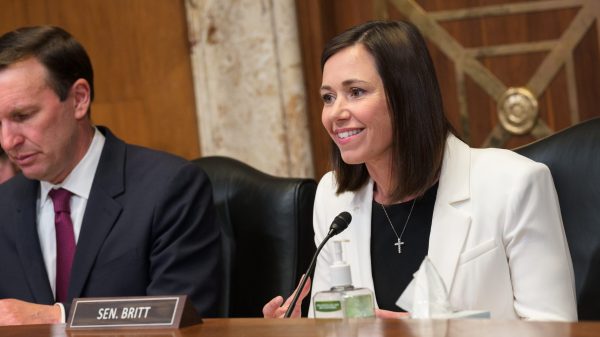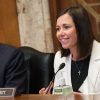By Bill Britt
Alabama Political Reporter
The Alabama Legislature is taking a serious look at the State’s budgeting process to make data-driven decisions on how best to address the reoccurring fiscal challenges facing our State. An Interim Report on Budget Reform prepared by the Joint Task Force on Budget Reform (JTF) released on May 11 of this year, shows many surprising facts, and offers some hope for remedies to decades of old problems.
In September 2016, a joint resolution passed establishing the JTF to answer the question of “What are we going to do to fill the hole in the General Fund Budget?” among others. The bipartisan group is headed by co-chairs Rep. Danny Garrett (R-Trussville) and Sen. Clyde Chambliss (R-Montgomery).
Its task is “to examine the structure and design of the State budgeting process and make recommendations for long-term budget and tax system reforms.”
The Focus is primarily on:
1) BUDGET PROCESS – how can the overall budget process be improved?
2) AGENCY REVIEW – what can be done to improve transparency and accountability of State agencies?
3) EARMARKING – what steps should be implemented so that revenues can be better appropriated based upon needs?
4) TAX CREDITS, EXEMPTIONS, DEDUCTIONS? – what steps should be taken to ensure that tax preferences are beneficial to the State and its citizens?
5) TAX FAIRNESS – what measures should be implemented to reduce the tax burden on middle and lower class citizens and improve the fairness of tax policy?
JTF is working to define the role of State government as it relays to essential services and spending priorities, something the Taskforce found “at present, there is no collective understanding or agreement of these items by the stakeholders.”
To answer all of these questions, the JTF deemed it necessary to have a detailed understanding of State finances based on historical data, and not random assumption or antidotes developed over the years by lobbyists, special interests, and the media.
The report shows that contrary to general perception, “State government has actually grown at roughly the same rate as the private sector over the last 40 years.” This report takes into account the peaks and valleys between anemic and prosperous years. An analysis of the historical data finds that spending by State government has averaged 4.2 percent of Alabama GDP over the last four decades.
A second common misperception is that, comparatively, citizens suffer an undue tax burden. The JTF study found that rather than an exceptional taxation 40 plus years of actual tax accounting records show Alabama’s average tax has been relatively consistent, averaging around six percent from the mid 70’s to the mid-2000’s. However, the report noted that since 2008 the State tax burden has decreased to nearly five percent, well below the 40-year low.
The public often complains about government spending that continues to grow out of control while excessive taxation threatens the State’s economic future. However, fact-based evidence proves the public’s perception of Alabama’s taxes and spending is not borne out by empirical data. These findings came as a surprise to the Task Force as well, because many JTF members held the same misconception about the State’s tax and spending policies. The report is quick to point out that while the averages may look fine, there is a need for improvement, especially in the area of earmarks, tax credits, fair taxing, and priority-based spending. The study which enlisted the cooperation of the Departments of Finance, Revenue, and Agencies, is the first step toward an overall reform effort that will enable the Legislature to more adequately and efficiently administer the budgeting process.
Another major hurdle to fiscal responsibility budgeting is $4.5 billion in tax credits, exemptions, deductions, and preferential tax rates handed out by Legislation. Many of these are in the form of corporate welfare that sees billions in incentives to companies without any measure of accountability. In fact, the State has no mechanism in place to evaluate the return on investment for any of the State’s billions in tax credits, exemptions, deductions, and preferential tax rates. Any attempt to rein in these unique benefits is met with an overwhelming lobbying effort by these so-called “job creators.”
The Task Force says, “The Legislature is at the beginning stages of evaluating the ongoing effectiveness of these tax benefits and to determine if the tax preferences are beneficial to the State’s revenue.”
Candidly, lawmakers will concede these are the most troublesome areas to regain tax revenue that could narrow the shortfalls the State faces every year because many of these “incentives” go to deep-pocketed corporate donors.
The Interim Report on Budget Reform also addresses the need for a 21st century-based fair taxing policy. As stated in the report, “Although the breadth of Alabama’s tax structure is wide, the State is heavily dependent upon sales taxes, which are extremely volatile.” It also compares surrounding states which have fewer and lower taxes that rely upon more stable and predictable sources of revenue. In other words in the 1960’s approximately two-thirds of our economy was taxed. Now approximately one-third of our economy is subject to state taxation. “This shift in our tax base is problematic for adequate, or even level funding of government,” the study concludes.
“This shift in our tax base is problematic for adequate, or even level funding of government,” the study concludes.
The JTF is broken into several individual study groups which include Budget Process, Agency Review, Unearmarking, Tax Credits, Exemptions, Deductions, and Tax Relief Study Group. The JFT will offer further findings to the Legislature on the fifth Legislative Day of the 2018 Regular Session.
Members of the JTF are as follows:
House
Representative Danny Garrett (Co-Chair)
Representative Anthony Daniels
Representative Allen Farley
Representative John Knight
Representative Chris Pringle
Representative Kyle South
Representative Rich Wingo.
Senate
Senator Clyde Chambliss (Co-Chair)
Senator Greg Albritton
Senator Linda Coleman-Madison
Senator Bill Hightower
Senator Bill Holtzclaw
Senator Bobby Singleton
Senator Phil Williams






















































